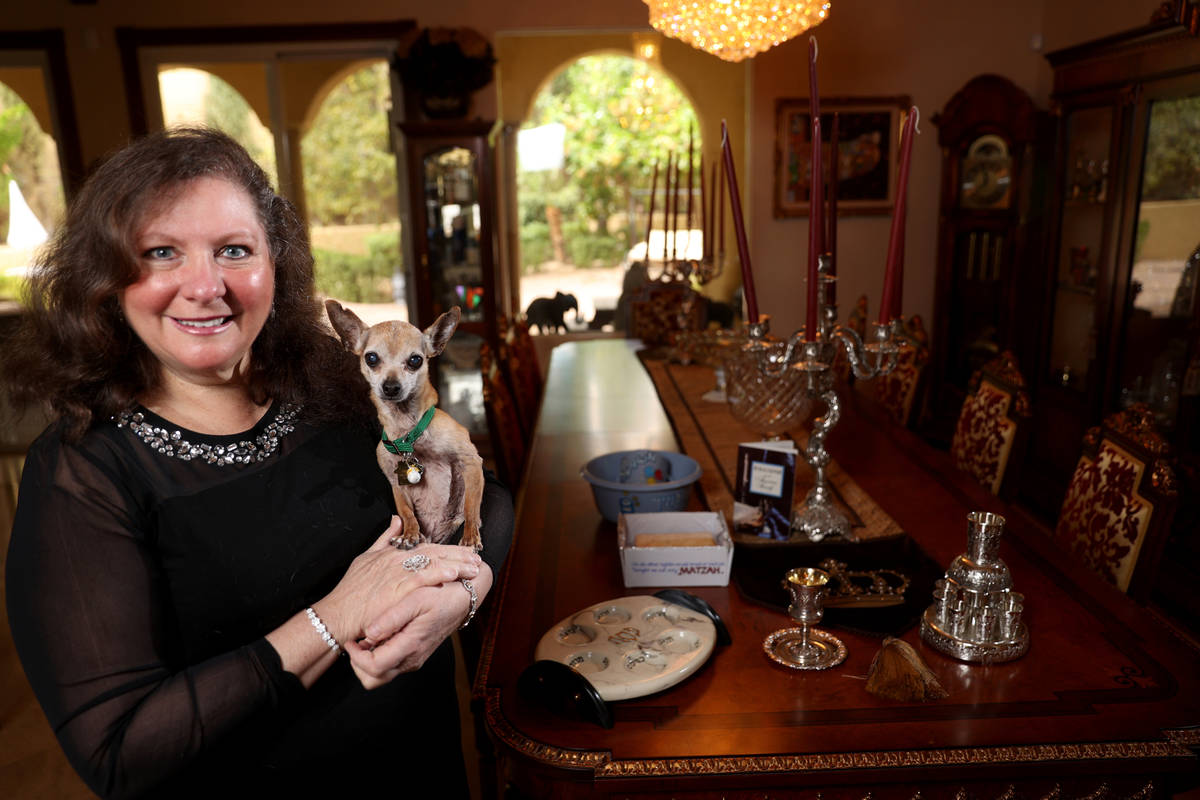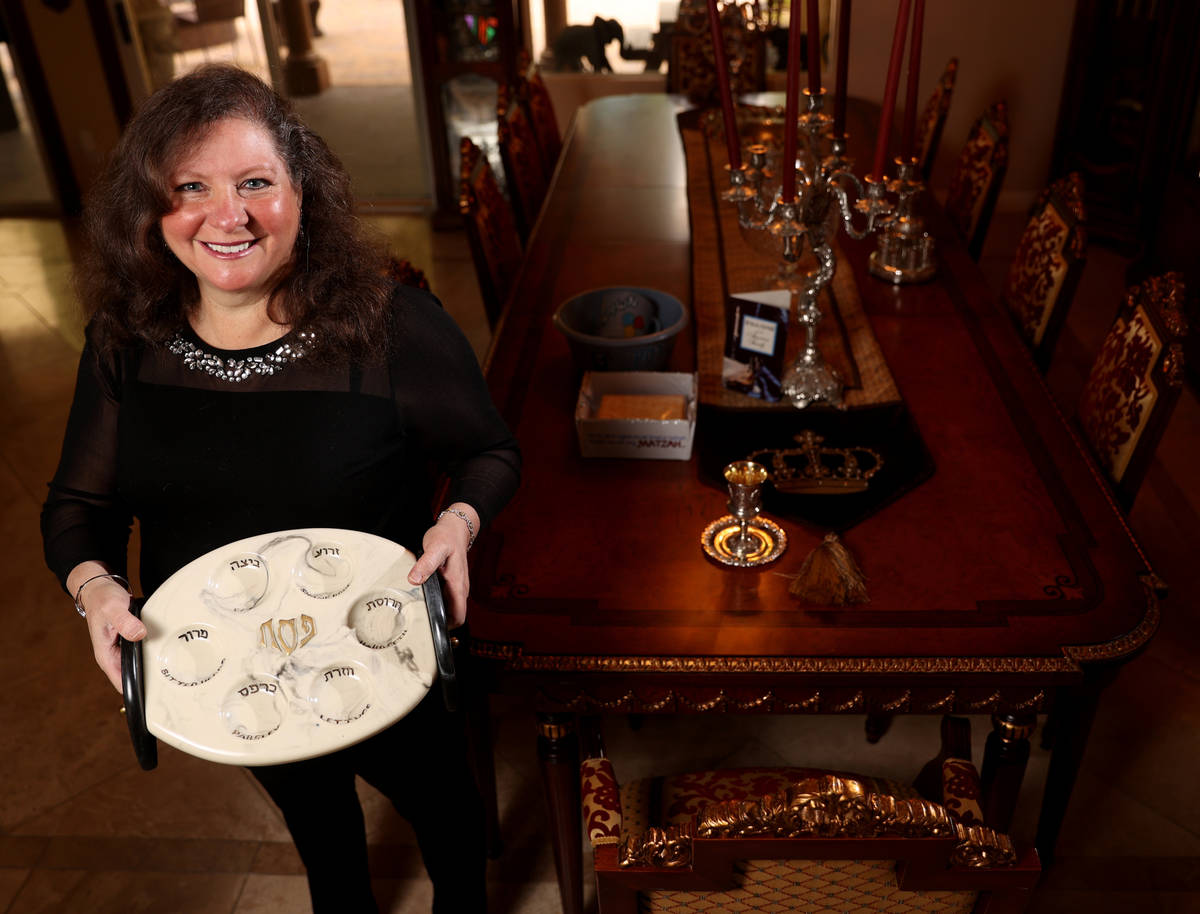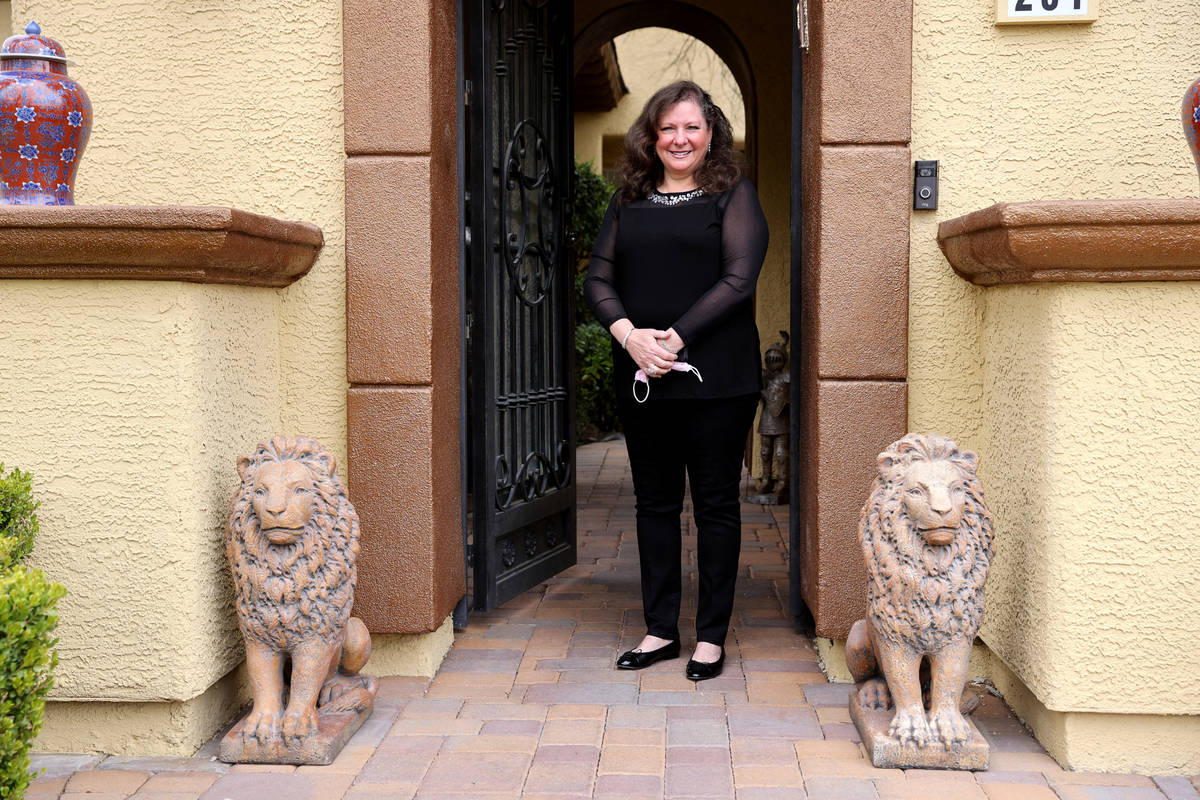Community Passover Seders return to Las Vegas Valley
In most years, Michele Morgan-Devore invites about 30 people — family members, friends, “anybody who doesn’t have a place to go” — to her home for a Passover Seder.
But not last year, when the COVID-19 pandemic forced Morgan-Devore to replace her usual packed-house Seder with a virtual family Seder on Zoom.
In most years, Paul Schiffman looks forward to attending Passover services and a community Passover Seder at Congregation Ner Tamid. Last year, he also had to scale back his plans when the synagogue’s community Seder was canceled, and instead cooked a Seder meal for himself and watched the congregation’s virtual Passover Seder from home.
The pandemic last year forced the cancellation of community Seders and even many in-home family gatherings. And while Passover routines are inching back to relative normalcy this year with limited-seating live Seders at several area synagogues, virtual Seders remain an option.
Passover — which begins the evening of March 27 and ends the evening of April 4 — celebrates the Jewish people’s liberation from slavery. During a ritual meal called the Passover Seder, the story is told through readings, commentary, songs, activities and the eating of symbolic foods.
“It’s the day we became a people,” said Rabbi Shea Harlig of Chabad of Southern Nevada, and expresses themes not only of liberation from slavery but liberation from spiritual bonds and our own limitations.
Beyond its religious importance, Passover can carry significant emotional heft because of the family gatherings that are a keystone of it.
Schiffman remembers how, when he was growing up in New York, “my whole family would get together. They say Passover is probably the one holiday all Jews celebrate in some way or another. It’s the most popular. If you’re Jewish, you know about Passover. It’s just part of your heritage.”
Passover is “all about coming together with family,” said Stefanie Tuzman, president and CEO of Jewish Nevada, and celebrations typically center around a home Passover Seder or community Seders offered by synagogues and Jewish organizations.
Last year, because of lockdowns, “a big piece of that was missing,” Tuzman said. “I think this year will be interesting to see if people come together or are doing a hybrid thing of the in-person (Seder) with the virtual. This year, I’d say it will be a mix.”
Morgan-Devore usually attends a community Passover Seder at Chabad of Southern Nevada on one night of Passover and then hosts another at-home Seder with her family.
Last year, because of the pandemic, “nobody was getting together with family,” she said. While she still wouldn’t feel comfortable attending a community Seder or hosting a large group of people in her home, she is planning to have an in-person Seder with immediate family members this year.
Their absence was difficult last year, she said. “There has been so much isolation and loneliness about all of this. People want to get together but can’t because of COVID, and that breeds even more isolation and depression.
“And, you lose that sense of spiritualness because you’re not with anybody and not sharing and recounting the (Passover) story. So a lot of people just stayed home and did nothing.”
Congregation Ner Tamid and Temple Sinai are holding a virtual Seder at 5 p.m. Sunday. Rabbi Sanford Akselrad of Congregation Ner Tamid said the only real difference between last year and this year is “whether people who are vaccinated feel comfortable in small groups.”
So, he said, virtual Seders again will address the need for “staying safe.”
Midbar Kodesh Temple is planning a live community Seder at 6:30 p.m. Sunday. Reservations are required, and the Seder also will be livestreamed on Facebook Live and Zoom.
Rabbi Bradley Tecktiel expects the Seder to be “a lot smaller than usual. Typically, we got anywhere from 120 to 130 to our annual Seder. This year I’m guessing … between 50 and 60 people.”
Attendees will undergo temperature checks and their names will be recorded in case contact tracing is necessary, said temple co-President Kevin Diamond. Tables will be positioned 12 feet apart, and each table will be limited to one family. Food will be served family style and attendees won’t be permitted to walk to other tables to greet others.
Temple Beth Sholom is having a in-person Seder at 7 p.m. Sunday, and Chabad Southwest Las Vegas is having in-person community Seders at 7:30 p.m. Saturday and Sunday. Reservations are required for both. While Chabad of Southern Nevada won’t have its usual community Seders, Harlig said, “we are reaching out to families in our community asking if they could host a few people in their household.”
About a dozen families have volunteered, Harlig said, adding that COVID protocols are to be followed.
Returning, even if only by inches, to a traditional Passover observance can’t come soon enough for some congregants.
“Interestingly, back when all of this started, we were telling people, ‘We’ve got to be really careful,’” Diamond said. “When we first started doing in-person (services), when we’d get five to 10 people at a service, the people who were waiting to come were the highest-risk people, because they miss temple.”
Schiffman, a member of Congregation Ner Tamid for about six years, is retired and single and has no family here. He enjoys attending events at the synagogue and said he missed last year’s community Seder “a lot.”
He’ll again watch a virtual community Seder at home this year. While he appreciates having the option, “it’s not the same,” Schiffman said. “Nothing can beat reality.”
Contact John Przybys at jprzybys@reviewjournal.com. Follow @JJPrzybys on Twitter.




















